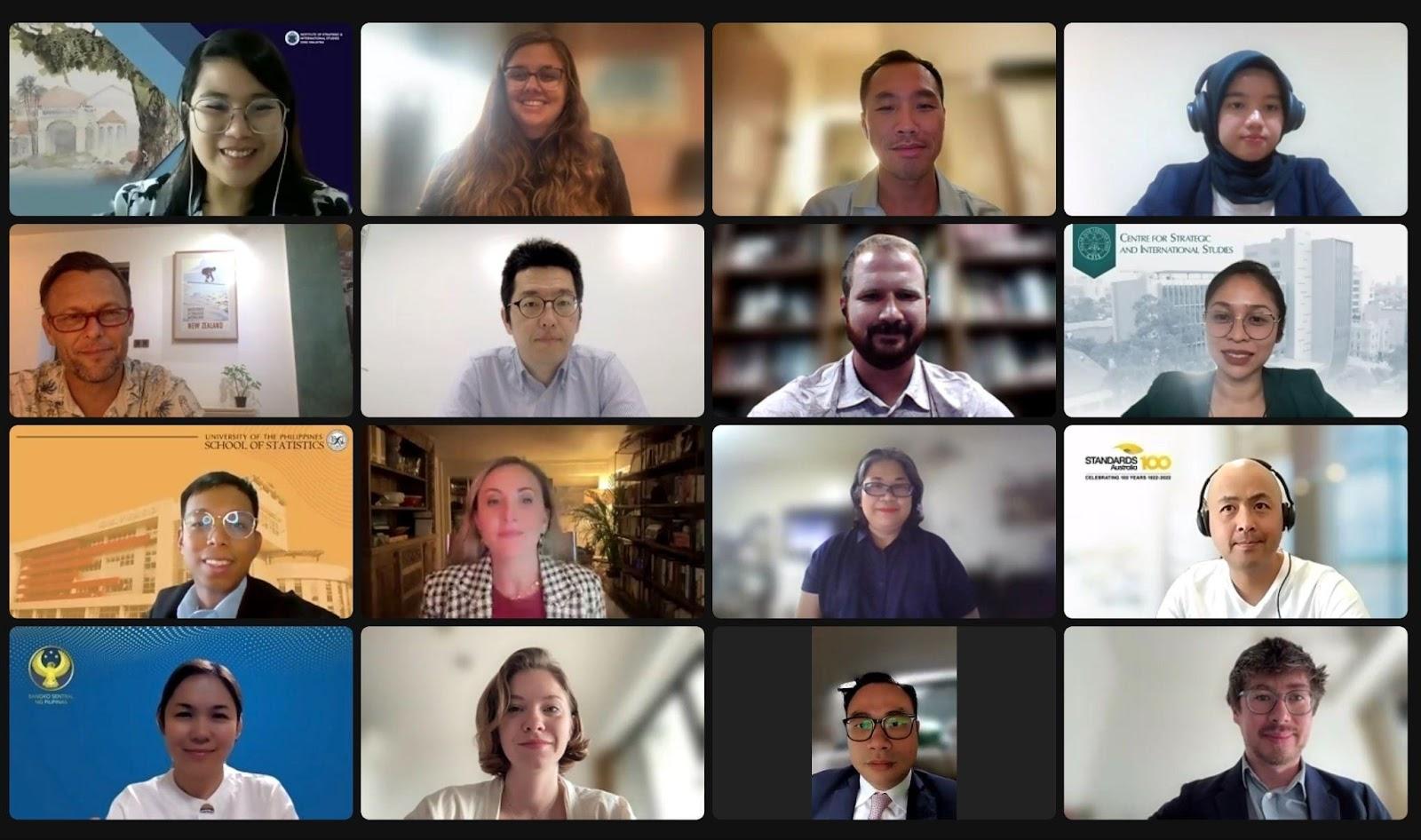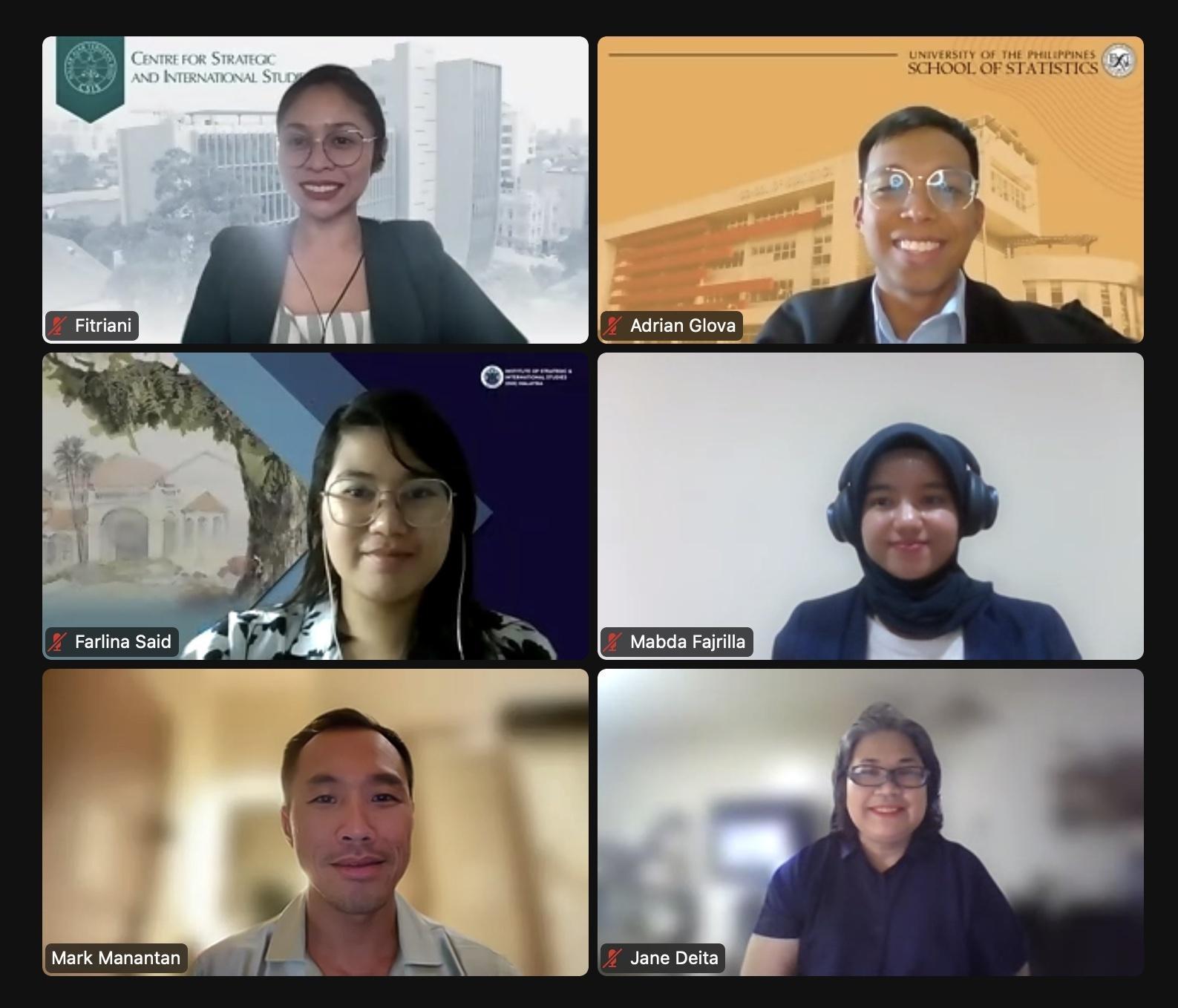
That’s a wrap: Pacific Forum concludes Cyber ASEAN’s Virtual Experts’ Meeting, identifies next steps

After successfully conducting the four country consultations across the Philippines, Vietnam, Indonesia, and Malaysia in the past 10 months, the Pacific Forum held the final virtual experts meeting last October 19, 2023. The final installment of the three-part closed-door virtual meeting convened regional and international cybersecurity and technology experts, professionals, researchers, and scholars to review the project’s key findings and outcomes. Complementing the in-person country consultations, the virtual experts’ meetings serve as a platform to provide feedback on the progress of the Cyber ASEAN framework and discuss salient issues that arise during the country consultations.
Like the previous virtual expert meetings, the third iteration showcased the major takeaways and learnings from the Indonesia and Malaysia consultations respectively. Cyber ASEAN Indonesia country expert Fitri Bintang Timur noted that the country is still upgrading its cybersecurity. Due to the prevailing technical and policy challenges in cybersecurity, Indonesia’s public and private sectors are highly exposed to cyber risks and vulnerabilities Nevertheless, Jakarta continues to demonstrate progress in advancing its cyber capacity through the enactment of policies and frameworks as well as proactive initiatives aimed at elevating Indonesia’s current standing in international collaboration, international standards-setting, information-sharing, and incident management and inclusion.
On Malaysia, Cyber ASEAN country expert Farlina Said emphasized Putrajayva's proactive participation in regional and international forums to drive norms promotion, confidence-building measures, and international standards-setting. However, there is still ample room for improvement, especially in information-sharing and incident management to better engage public and private sector entities, as well as mainstreaming inclusive cyber policies to raise cyber workforce capacity.
With the completion of the four-country consultations, an assessment of the project’s milestones was also presented. Cyber ASEAN’s Monitoring and Evaluation consultant Jane Deita offered the survey results involving the target stakeholders' views of the framework and the project’s overall approach. Summarizing participant’s feedback from the four country consultations, Ms. Deita stressed that the Cyber ASEAN framework is “highly appreciated, and the four pillars are present and operational at various levels in the pilot countries.” Overall, participants “endorse the Cyber ASEAN framework as highly acceptable and fit-for-purpose to the ASEAN context.”
The second half of the virtual session was devoted to the next steps regarding the Cyber ASEAN Framework and its expected launch in March 2024.
Reflecting on the inputs provided by the target stakeholders throughout the project’s implementation, the virtual experts meeting unveiled three research components of the project aimed at strengthening the strategic and economic imperatives of the Cyber ASEAN framework. In exploring the strategic and economic implications of cybersecurity, Cyber ASEAN endeavors to persuade policymakers, practitioners, and experts to endorse the framework’s adoption and adaptation as the region’s homegrown cyber capacity assessment framework.
Mabda Haerunnisa Fajrilla Sidiq presented her initial findings that map ASEAN’s journey to institutionalizing and socializing cybersecurity that lies at the intersection of security and economy. Adding a quantitative dimension to the project, Adrian Glova discussed the economic benefits of cybersecurity standards. Pacific Forum Director of Cybersecurity and Critical Technologies Mark Manantan also shared updates regarding the Cyber Threat Tracker, an online platform compiling all publicly known cyber incidents that affected the four pilot countries. Analysis of the Cyber Threat Tracker underscores that the Philippines, Viet Nam, Indonesia, and Malaysia are often targeted by similar cyber-threat actors with the intent of gathering geopolitical intelligence, causing disruption, and stealing valuable intellectual property. Employing regression analysis, Mr. Glova previewed his initial findings on the positive implications of adopting international technical standards in the context of Indonesia and the Philippines’ gross domestic product, and foreign direct investments.
In integrating the views, feedback, and observations from the four country consultations alongside the two previous virtual experts’ meetings, Pacific Forum Director of Cybersecurity and Critical Technologies Mark Manantan presented the updated Cyber ASEAN framework, comprising of international collaboration, international technical standards, information-sharing, and incident or threat management and inclusion.
In closing, Mr. Manantan thanked all the experts for their immense contribution to the development of the Cyber ASEAN framework. “From Manila, Hanoi, Jakarta, Kuala Lumpur, Honolulu, Auckland, Singapore, Sydney, Washington DC, Tokyo, to San Francisco. Wherever you are, I hope that we stay connected beyond the shelf life of this project. In the coming months, the core team of Cyber ASEAN will reconvene to finalize the framework, and the special report, please cheer on us as we accomplish our remaining deliverables. But beyond the successful launch of the final framework, and the accompanying final report, our greatest accomplishment is making Cyber ASEAN a reality—a collegial community united by a singular goal of advancing cyber resiliency and capacity in Southeast Asia and beyond.
Held with support from DFAT’s Cyber and Critical Technology Cooperation Partnership, Cyber ASEAN is a capacity-building and development initiative seeking to advance Southeast Asia’s proactive role in strengthening its overall cybersecurity and resiliency posture. Learn more about Cyber ASEAN and key updates of the project through: https://cyberasean.pacforum.org/.
